#The Way of Yehoshua
Text
LOOKING BACKWARD
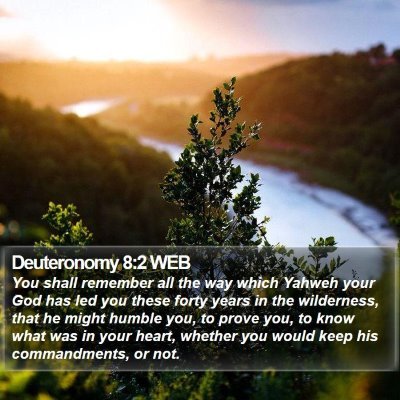
THE KEYNOTE of this chapter is "Remember!" Faith begins without certain evidence of an external and positive kind, but as life advances, one day after another adds the weight of its indisputable testimony. If we step out on the supposition that there is an eternal and spiritual world enwrapping us on all sides, we shall come to so clear and distinct an assurance of it, that it would be easier to doubt our existence.
It is a good thing to look back and see the way; it is as certain as possible that the thread of Divine purpose is stringing together the many-colored links of our life.
Notice the alliteration of Deu_8:15, Deu_8:16. "Who led thee"; "Who fed thee." Where God leads, He feeds! Look back on the past, and see that just as sure as the guidance of God, has been His care. There is no lack to those who allow Him to lead them in His own paths.
Look back on the past!—Its sins and backslidings—leave them behind for ever, and rise to newness of life. Its discipline—intended to chasten and strengthen us. Its trials—meant to reveal God's power to deliver in the hour of trouble that we may glorify Him. The terrible wilderness of loneliness, the fiery serpents of temptation, the manna which has never failed to fall, the water which the Rock has ever yielded. Deu_8:17-18 teach us the lesson of humility. If, for some reason, you have been put into a position of wealth, honor, or influence, do not be proud, or think that your talents or abilities are to receive the praise.
Thank God, and remember that it is He who gives the power to get wealth or honor, and He does it with a very definite purpose! Will you not pledge yourself to serve and worship Him? As you climb the crest of the hill, and begin to descend into the plain, not knowing what lies before, veiled in the mist, fear not, tighten your girdle, put your hand in His, and walk with Him to be His instrument to bless the world of men.
10 notes
·
View notes
Text
Yehoshua Hattav z"l, 67 years old, was hit by a rocket on the morning of October 7th, 2023. Hamas and other terrorist organisations in Gaza have fired about 3,000 rockets at Israel in the first hours of October 7th. Yehoshua, who lived in Ashkelon, was on his way home from the synagogue when he was severely injured by a rocket. He survived, with intensive medical care, until the early morning of October 11th, when he died of his injuries at the hospital. Yehoshua was a beloved husband, father, grandfather. May he rest in peace. May his memory be a blessing.
יהושע חטב ז"ל, בן 67 מאשקלון, נפצע קשה מפגיעת רקטה בבוקר ה7 באוקטובר, בדרכו הביתה מבית הכנסת. נפטר מפציעתו בבית החולים ב11 באוקטובר, כ״ו תשרי, תשפ״ד. הותיר אחריו אישה, שתי בנות, ושבעה נכדים. יהי זכרו ברוך. ת.נ.צ.ב.ה.


68 notes
·
View notes
Text

Looking for tips on how to tell my kids that their principal’s son was murdered today.
Shimon Yehoshua Asulin fell in Gaza fighting a vile terrorist organization that attacked his country unprovoked and in the most barbaric way the world has seen since the holocaust.
A sweet kid whose father is a righteous man that has taught hundreds of students about the land of Israel, the Torah of Israel, the people of Israel, and how Judaism is a religion of peace.
He now joins a club he never asked to be a part of. I can tell you first hand, this is a club no one wants to be a part of.
Baruch Dayan Haemet. RIP, Shimon.
45 notes
·
View notes
Note
Why do you spell Abraham with v? Is it a hebrew way to spell it? I'm not a native english (nor hebrew) speaker so I'm used to seeing names spelled either in my mother tongue or in the 'standard' english way
Yes, in Hebrew it is pronounced "Avraham." It was anglicized to Abraham by Christians.
Other common names Jewish names that were anglicized and how they're actually pronounced:
['ch' is pronounced like the 'ch' in Challah]
Eve- Chava (Cha-vah)
Noah- Noach (No-ach)
Isaac - Yitzchak (Yitz-chak)
Rebecca- Rivka (Riv-kah)
Jacob- Yaakov (Yah-ah-kove)
Rachel (Rah-chel)
Judah- Yehudah (Yeh-hoo-dah)
Josef- Yosef (Yo-sef)
Moses- Moshe (Mo-sheh)
Aaron- Aharon (Ah-hah-rone)
Jethro- Yitro (Yit-roe)
Joshua- Yehoshua (Yeh-hoe-shoo-ah)
Samson- Shimshon (Sheem-shone)
Elijah- Eliyahu (Eh-lee-yah-hoo)
Samuel- Shmuel (Shmoo-el)
Saul- Shaul (Shah-ool)
David (Dah-veed)
Abigail- Avigayil (Ah-vee-gah-eel)
Solomon- Shlomo (Shloe-moe)
Gabriel- Gavriel (Gav-ree-el)
Michael (Mee-chah-el)
Usually when Hebrew names are anglicized, the "v" sound is changed to a "b" sound, the "y" sound is changed to a "j" sound (there's actually no "j" sound in Hebrew), the "t" sound is changed to a "th" sound, and the "ch" sound is chanced to either "h" or "ch" as in "chocolate". And sometimes there's even more weird shit done to the word or name like in "Solomon".
I don't like to write Hebrew names in their anglicized way because I don't want Jewish words and language to be suppressed. The only time I'll write things in their anglicized way is if I'm explaining myself to people who don't know.
445 notes
·
View notes
Text
From Jediism to Judaism: Star Wars as Jewish Allegory, by Daniel Perez
A look at some of the Jewish elements – coincidental or otherwise – of Star Wars.
A long time ago in a place far, far away...
It is a period of civil war. A new government has declared the practice of the old faith a crime punishable by death, disbanding an ancient order of sages and sending many into exile. Rebel fighters, striking from a hidden base, have won their first major victory against the evil Empire, stirring a spirit of defiance among the populace. Outarmed and vastly outnumbered, the ragtag band of rebels – aided by an all-powerful, all-permeating Force that binds together all life in the universe – remain the only hope for restoring peace and freedom to their people.
It's one of the greatest epics known to mankind. No, not Star Wars. The above synopsis is actually the story of Hanukkah, the eight-day Jewish festival that commemorates a miraculous victory of Israelite insurgents against the tyrannical Seleucid Empire roughly 2,200 years ago.
With Star Wars Episode VII set to premiere in just a few short weeks, I got to thinking about how certain aspects of the Star Wars universe are eerily similar to the history, beliefs, and teachings of the Jews. Now George Lucas did not set out to create a fantasy universe full of Jewish references, but the connections are nevertheless there. So let's put the “Han” back in Hanukkah (Harrison Ford, by the way, technically a member of the tribe) and look at some of the Jewish elements – coincidental or otherwise – of Star Wars.
A Galaxy of Hebrew Names
The heroes of the Star Wars series are members of a “rebel alliance,” basically Maccabees in outer space. It's right there in the name: Jedi. The Hebrew letter yud is often anglicized as a “J,” and syllables occasionally get dropped in translation. Hence, a Biblical name like “Yehoshua” makes its way into English as “Joshua.” It's not much of a stretch to see how “Jedi” can be derived the original Hebrew word for Jew, “Yehudi.”
Remember Luke Skywalker's Jedi rebbe, Grand Master Yoda? Is it just me, or is his peculiar syntax reminiscent of someone whose first language is Yiddish (“Yodish”)? More to the point, his name sounds a lot like “yada,” the Hebrew word meaning “to know.”
And how about those Skywalkers? Luke Skywalker might sound like a gentile name, but that name was clearly chosen to alliterate with his twin sister Leia (Leah). Also keep in mind that their parents were an interfaith couple. The father, Anakin Skywalker, played by the unmistakably un-Jewish Hayden Christensen, tried to convert to Jediism, but as we know he ultimately turned to the Dark Side instead. Their mother was Queen Amidala, portrayed by the beautiful and talented Israeli-born actress Natalie Portman. Suffice it to say their marriage did not end well, and it wasn't until much later in life that their children discovered their Jedi-ish identity.
Learning Academy
When an aspiring Jedi Knight goes to the Academy, he or she must complete what is essentially an apprenticeship with one more learned in Jediism than they are. Similarly, a future rabbi's yeshiva experience will consist largely of chavruta learning (studying with a partner – lit. “friendship”). Fun fact: The name for a young, unmarried yeshiva student, “bochur,” actually means “chosen” (as in “The Chosen People”). The idea of a foretold “Chosen One” who would “restore balance to the Force” was a theme running throughout the Star Wars films, wherein Anakin Skywalker was recognized for his extraordinary potential as a Jedi. As mentioned above, he went “off the derech” and became the villainous Darth Vader. In Return of the Jedi, however, Vader/Skywalker fulfills the “prophecy” when he does teshuvah (our term for repentance, which literally means “return.” Whoa. Return of the Jedi!), thwarting Emperor Palpatine to save his son's life, and ultimately, the galaxy.
Of course, if you tell a young rabbi-in-training that he is the “Chosen One,” it sounds cool and dramatic and is technically true, but then, the same can be said of all of his classmates.
While the Star Wars films don't feature Jedi trainees delving into sacred texts (it doesn't make for the most exciting movie montage), some of the greatest rabbinic books of ethics and Jewish philosophy would be right at home in any Jedi library. “Duties of the Heart,” “The Path of the Just”....tell me these don't sound like the reading list for a hero of the Light Side.
The Force
While Jediism isn't a theistic religion per se, its practitioners do teach of a Force that, in the words of Reb Obi-Wan Kenobi "...is what gives a Jedi his power. It's an energy field created by all living things. It surrounds us and penetrates us; it binds the galaxy together." That almost sounds like some sort of Chasidic teaching – just replace “energy field” with “entity” or “consciousness,” and “created by,” with “that creates,” and what you have starts to come across less like new age hippie talk and more like an introduction to Kabbalah, Jewish mysticism.
One idea that devout Jews of all stripes share, is that God, the creative “Force” that sustains all, is the source of a Jew's power. “Ein od milvado,” there is none besides Him. The Jew expresses his or her connection to the universe by striving for an ever closer relationship with its Creator.
Another aspect of Jedi belief is the notion of balance, the idea that the Light Side and the Dark Side are both aspects of the same Force seeking equilibrium. The religions that branched off from Judaism tend to show the Creator and Satan, or “The Devil,” in an adversarial relationship, almost a sort of de facto dualistic theology with a God and an anti-God, if you will. Judaism maintains that the Satan (lit. “Accuser”) is the angel associated with temptation, and prosecution in the Heavenly Court. He's basically Slugworth to God's Willy Wonka. He's got a dirty job to do, but in the end, we're both serving the same Boss.
Judaism also teaches that the source of Light and Darkness are One and the same, as it says in the prayer book: “Blessed art Thou, Lord our God, King of the Universe, Who forms light and creates darkness, Who makes peace and creates all things.” The source for this line of liturgy can be found in the Hebrew Bible, Isaiah 45:7: “Who forms light and creates darkness, Who makes peace and creates evil; I am the Lord, Who makes all these.”
Incidentally, one of the traditional names for God – invoked particularly by the Jewish mystics – is HaMakom, literally “The Place.” The deeper idea conveyed by this name is that the Creator does not exist within the universe; the universe exists within Him. It sounds a lot like The Force. The key conceptual difference between the fictitious all-uniting Force of Star Wars and the Shechinah or “Divine Presence” is that the former is impersonal and passive, the latter is an omnipotent consciousness that actively intervenes in human history, speaking with Prophets and working miracles until this very day.
So if you see the new Star Wars movie, directed by Jeffrey Jacob Abrams (who couldn't sound more Jewish if his name was Saul Cohen or Herschel Rosenblatt), perhaps you'll be able to seek out and appreciate the surprisingly Jewish flavor of the Star Wars universe.
Happy Hanukkah, and may the Force be with you!
#wooloo-writes#wooloo writes#star wars#sw#jedi#jedi and judaism#judaism#✡️#article#chanukah#hanukkah#happy hanukkah#happy chanukah
22 notes
·
View notes
Text
Following Hamas's criminal invasion of southern Israel, brave men and women have stepped up to defend their homeland, with dozens sacrificing their lives in the process; These are their names
Yoav Zitun, Ilana Curiel, Elisha Ben Kimon, Meir Turgeman, Israel Moskvitz, Roni Green Shaulov|Updated:10:13
Related Topi
More than 700 Israelis were murdered on the first day of the war against Hamas. So far, only a few dozen names have been released.
Reports emerged on Saturday of the death of Nahal Brigade Commander Col. Jonathan Steinberg among numerous others. He was killed in clashes with a terrorist near Kerem Shalom. On Sunday morning, the names of an additional 25 fallen soldiers were reported.
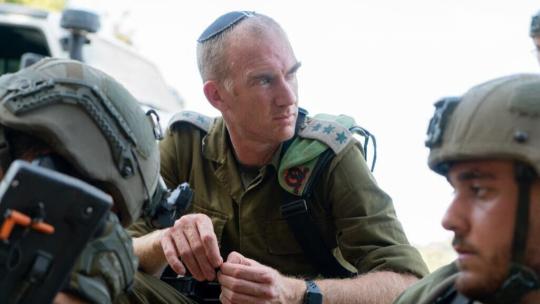
Nahal Brigade Commander Col. Jonathan Steinberg
(Photo: IDF Spokesperson's Unit)
Steinberg, 42, from Shomria, was en route to a clash site where his soldiers were engaged with terrorists. He encountered a terrorist on his way there and was killed during a firefight near Kerem Shalom.
The names of the fallen IDF soldiers that have been released are as follows: Sst. Roi Weiser, 21, from Efrat, a Golani soldier; Sst. Adir Geori, 20, from Jerusalem, a Sayeret Matkal commando; Cpl. Ariel Eliyahu, 19, from Mitzpe Yericho, a 7th Armored Brigade soldier; Sst. Guy Simchi, 20, from Gedera, a Paratrooper; Cpl. Shira Shochat, 19, from Modi'in-Maccabim-Re'ut, a Unit 414 soldier; Sgt. Maj. Aharon Parash, 36, from Ofakim, a Technology and Maintenance Corps inspector; and Lt. Shilo Cohen, 24, from Sderot, a Shaldag soldier.
Maj. Amir Sakuri, 31, from Jerusalem, a Sayeret Matkal commando; Warrant Officer Ido Rosenthal, 45, from Ben Shemen, a Shaldag soldier; Maj. Ariel Ben Moshe, 27, from Kiryat Bialik, a commander in Sayeret Matkal; Cpl. Danit Cohen, 19, from Sderot, a soldier in Southern Command; Sst. Or Mizrachi, 21, from Petah Tikva, a Nahal soldier; Cpl. Amit Gueta, 21, from Rehovot, a Maglan soldier.
Earlier, the names of the following fallen were cleared for publication: Col. Roi Yosef Levy, 44, from Shavei Tzion, commander of the Multidimensional Unit, also known as the “Ghost” Unit; Lt. Col. Yonatan Tzur, 33, from Kedumim, the commander of the Nahal Reconnaissance Battalion, Maj. Avraham Hovlashvili, 26, from Ashdod, an officer in Caracal; Sgt. Itay-El Marciano, 20, from Shoham, a Paratrooper; Pvt. Ofir Davidian, 18, from Patish, a logistics soldier in the Home Front Command; Cpt. Tal Grushka, 25, from Kfar Saba, a Nahal officer; Cpt. Arye Shlomo Tsering, 27, from Raanana, a K-9 Unit officer. Sst. Ilay Gamzu, 20, from Ashdod, a Paratrooper; Sst. Ohad Cohen, 20, from Idan, a Shaldag soldier.
Cpl. Itamar Ayash, 19, from Kiryat Gat, served in the Southern District of the Home Front Command; Maj. Ido Yehoshua, 27, from Yavne, commander of the training platoon at the Special Air Forces School. Cpl. Uri Locker, 19, from Pardes Hana Karkur, a Golani solider; Maj (Res.) Omri Michaeli, 35, from Nes Ziona, a Duvdevan soldier; Maj. Vitali Skipkevich, 21, from Ariel, an Egoz soldier. Lt. Shoham Tomer, 23, from Srigim, company commander in the 934th Reconnaissance Battalion; Lt. Itai Maor, 23, from Rosh Ha'Ain, a platoon commander in the Golani Brigade's 51st Battalion; Lt. Rom Shlomi, 23, from Moshav Ganot, reconnaissance platoon commander in the Shaldag Unit. Cpl. Yaron Zohar, 19, from Kiryat Ata, a Golani soldier.
Cpt. Adir Aboudi, 23, from Modi'in, a commander in the Home Front Command; Cpt. Yotam Ben Bassat, 24, from Bat Hefer, a commander in the Multidimensional Unit; Sgt. Ofir Tzioni, 21, from Yokneam Illit, a commander in the Home Front Command; 2nd Lt. Adar Ben Simon, 20, from Neve Ziv, a commander in the Home Front Command; Sgt. Or Asto, 21, from Be'er Sheva, a logistics NCO in Golani.
Fallen IDF soldiers and officers from the Swords of Iron War

(Photo: Israel Police, IDF Spokesperson's Unit)
Sgt. Eden Alon Levi, 19, from Nirit, a commander in the Home Front Command; Sst. Yuval Ben Yaakov, 21, from Kfar Menahem, a solider in the 7th Armored Brigade; Cpl. Guy Bazak, 19, from Givatayim, a Golani soldier; Pvt. Nerya Aharon Nagari, 18, from Talmon, a Home Front Command soldier; Pvt. Naama Boni, 19, from Afula, a soldier in the 7th Armored Brigade; Lt. Iftah Yavetz, 23, from Ramat Hasharon, a commander in Maglan.
Lt. Col. Sahar Mahlouf, 36, from Modi'in, the commander of the 481st Signal Battalion; Sgt. Ofek Rosenthal, 20, from Kfar Menahem, a Maglan soldier; 2nd Lt. Yanai Kaminka, 20, from Tzur Hadassah, a commander in the Home Front Command; Lt. Or Moses, 22, from Ashdod, a commander in the Home Front Command; Sst. Omri Niv Feirstein, 20, a Home Front Command soldier; Cpl. Dvir Lisha, 21, from Nitzan, a Golani soldier.
Sgt. Ido Harush, from Mitzpe Ramon, a soldier in the 7th Armored Brigade; Sgt. Menashe Yoav Maliev, 19, from Kiryat Ono, an officer in the 7th Armored Brigade; Cpl. Netanel Yang, 20, from Tel Aviv, a Golani soldier; Maj. Chen Buchris, 26, from Ashdod, the deputy commander Maglan; Lt. Or Yosef Ran, 29, from Itamar, a commander in Duvdevan; Cpl. Adi Gurman, 19, from Hogla, a Unit 414 soldier; Sfc. Amir Fisher, 22, from Tel Aviv, a Duvdevan soldier; Lt. (Res.) Ido Edri, 24, from Givaton, an infantry officer.
Raz Tzioni, father of Sst. Ofir Tzioni, said, "We spoke to him for the last time Friday evening, he said that everything is fine with him. On Saturday when we realized what happened, I sent him a message 'Write that everything is fine...,' but he didn't respond. In the evening, the army representatives came to inform us."

Fallen police officers
After a day of intense combat, where Israel Police officers, Border Patrol soldiers and commandos valiantly stood at the forefront of battles against the enemy, the Israel Police solemnly announces the death of 30 of its members. The following are their names:
Chief Superintendent Ge-ar Davidov, commander of the Rahat station; Chief Superintendent Itzhak Shvili, commander of the Segev Shalom station; Superintendent Martin Kuzmickas, commander in the coordination of enforcement operations unit; Chief Inspector Shlomo Moshe Al, officer in the Yamam counter-terror unit; Superintendent Nisim Lugasi, deputy commander of a Magav unit; Superintendent Amin Ohonadov, squad commander in the Yoav unit; Inspector Andrei Poshivi, town station patrol officer; Inspector Alexei Shamkov, officer in the Yamam counter-terror unit; Senior Non-Commissioned Officer Meir Abragil, Sderot station investigation coordinator; Sergeant Major Chen Nahmias, sniper in the Yamam counter-terror unit.
Sergeant Major Roman Gendel, instructor in the Lotar counter-terror unit; Sergeant Major Yehuda Kedar, non-commisioned officer Border Police officer at the Eshkol Ein Habsor station; Sergeant Major Roni Abuharon, detective at the Rahat station; Sergeant Major Adir Shlomo, head of logistics at the Sderot station; Sergeant Major Igal Iluz, bomb sapper; First Sergeant Bar Sivan, fighter in the Yamam counter-terror unit; First Sergeant Alon Barad, investigator at the Rahat station; First Sergeant Alexey Borodovsky, Negev Yasam patrol unit; First Sergeant Vitaly Karsik, forensics department crime scene investigator, Tel Aviv District; First Sergeant Alik Poznyakov, detective in the Magen unit.
First Sergeant Melik Karim, investigator at the Be'er Sheva station; First Sergeant Yoram Eliyahu Cohen, fighter in the Yamam counter-terror unit; Staff Sergeant Major Dror Elton, sapper in the Yamam counter-terror unit; Staff Sergeant Yaakov Shlomo Krasninski, fighter in the undercover police unit; Staff Sergeant Major Elior Yifrach, detective; Sgt. First Class Avi Buzaglo, detective at the Rahat station; Sgt. First Class Michael Lizmi, detective at the Be'er Sheva station; Sgt. First Class Shai El Knafo, town patrol in police’s Southern District; Staff Sergeant Alyona Astapenko, town patrol at the Ofakim station; Corporal Ravit Hanna Asayag, Border Police officer in police’s Southern District.
The harrowing details from the incident near Moshav Re'im, where Hamas terrorists raided an open-air rave, are gradually coming to light. So far, the identified victims from the event include Tzur Saidi, Omri Ram and Aviad Halevi.
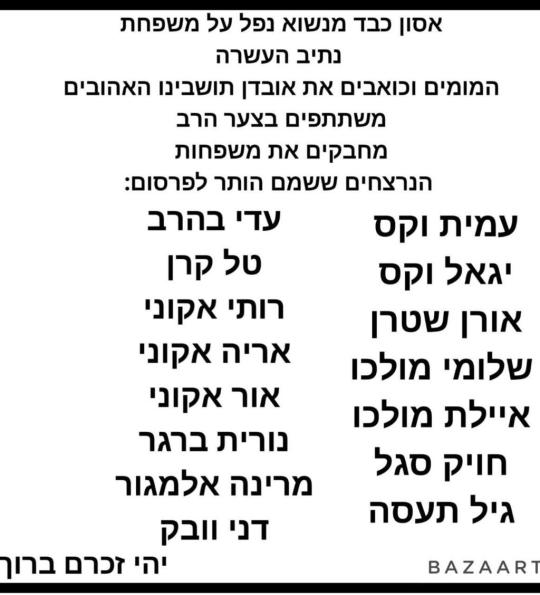
List of names of the deceased from Netiv HaAsara
Shortly before midnight on Saturday, the names of 15 victims in Netiv HaAsara, a town of less than a thousand people near the Gaza border, were cleared for publication: brothers Amit and Yigal Wax, Oren Stern, Shlomi and his wife Ayelet Molcho, Hevik Segal, Gil Ta'aseh, Adi Baharev, Tal Keren, Ruthi and Aryeh Akuni and their daughter Or, Nurit Berger, Marina Almagor and Danny Vobek.
Vobek, a resident of Netiv HaAsara, had been a volunteer with the ZAKA divers unit for many years. The organization said that "he took part in dozens of rescue missions, dedicated to saving lives and honoring the deceased. During the brutal attack on Netiv HaAsara, Vobek courageously defended his home and friends, ultimately losing his life in the battle against armed terrorists. ZAKA volunteers, alongside the entire nation of Israel, mourn his loss, share in the pain, and extend condolences to his family and loved ones."
Talia Marcelle, from Kiryat Arba, was murdered in the surprise attack on Kibbutz Ein Hashlosha near the Gaza border. A few years ago, Marcelle relocated from the Talia farm in the Hebron hills to Kiryat Arba. She was fatally shot on the kibbutz where she was celebrating the holiday.
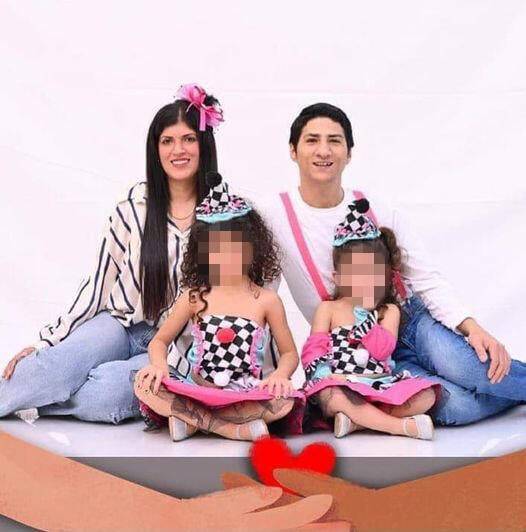
Dolev and Odeya Swissa and their two daughters
Dolev and Odeya Swissa were murdered in their hometown of Sderot. They leave behind two young daughters, ages 3 and 7. Dolev, who was shot by terrorists, was found dead Saturday night. A search was conducted throughout the night for his wife Odeya, who was considered missing until her body was discovered in the morning. "We don't know how the girls were saved," said Rehovot Deputy Mayor Zohar Blum, who is married to Dolev's sister. "We woke up to a dark morning."
Blum added, "Following the heart-wrenching news of Dolev's murder and a sleepless night, we have now learned that Odeya, his beloved wife whom we searched for hours, was also mercilessly murdered by the assassins. This young couple's lives were tragically cut short in the war, simply because of their location near the Gaza Strip and the startling ease with which the terrorists invaded their home. A remarkable couple, they leave behind two young, now orphaned, daughters. My heart aches for my wife and her family in Sderot.
Aharon Haimov, a 25-year-old senior paramedic and ambulance driver with Magen David Adom (MDA) from Ofakim, was fatally shot on Saturday morning en route to treat the wounded in his hometown. He is survived by his wife and two children. Haimov began his career with Magen David Adom as a post-high school volunteer before joining the organization in a professional capacity.
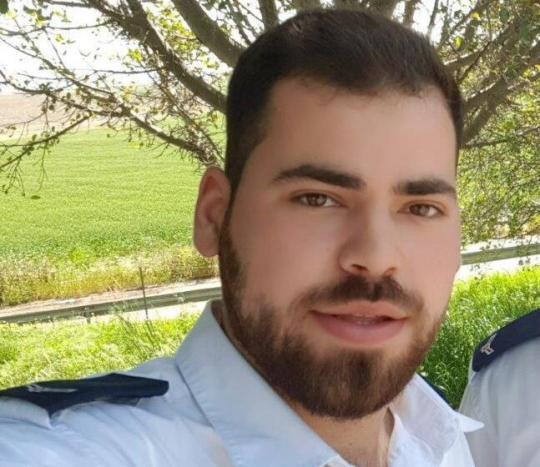
Magen David Adom senior medic and ambulance driver Aharon Haimov, 25, of Ofakim was killed on his way to treat injured
“He was a person who put the good of others and the value of life ahead of everything else — including today, on this tragic morning,” said MDA Director-General Eli Bin.
Israel Fire and Rescue Services announced that Kiryat Gat Fire Station Commander Battalion Chief Shalom Tzaban and Senior Firefighter Yevgeny Galsky were also slain in the attack. Tsaban, 60, a father of two, joined the fire brigade in 1992 and was posthumously promoted to fire deputy chief. Galsky, 34, served in the Netivot fire station. He was promoted posthumously to the rank of sergeant firefighter.
Israel Fire and Rescue Services Commissioner Eyal Caspi extended his condolences to the families and commended the firefighters and commanders who were working tirelessly in numerous locations throughout the conflict zone.
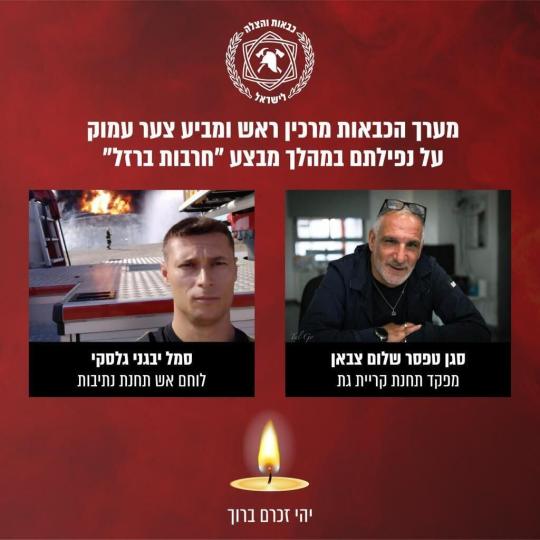
Israel Fire and Rescue Services announcement of the death of Shalom Tzaban (right) and Yevgeny Galsky
The fire brigade on Sunday morning announced the death of Sergeant Major Firefighter Eric Yehuda Marciano, 50, who joined the fire brigade in 1996 and served as a team leader at the Kiryat Gat Fire Station. He is survived by his wife and three children.
His daughter Coral said: "He went on duty, and probably because of the pressure, he forgot his bag at home. I wrote to him, 'Dad, you forgot your bag.' At 7:05am, he told me he would come back to get it and at 7:20 he no longer answered me, he had already encountered the terrorists. Numerous trucks loaded with armed terrorists entered the area. He fought the terrorists and managed to save a child. I knew my father was dead before we were informed; someone saw him dead and sent me a picture. My father is a hero. He was my whole world. He was a father who always put us first, and himself second, placing everyone before him."
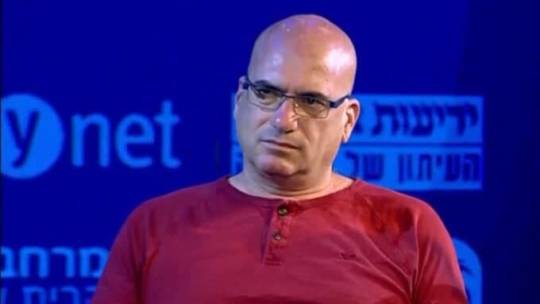
Head of the Sha'ar HaNegev Regional Council, Ofir Libstein, was killed in the terrorist attack on the Gaza border town
(Photo: Contact)
The head of the Sha’ar HaNegev Regional Council, Ofir Libstein, was killed during fighting with Hamas terrorists Saturday morning. “Ofir was killed when he went to defend a town during the terrorist attack,” the council said.
Israel Amichai Vitzan and Moshe Yedidya Raziel (Rosenberg) were killed in Kerem Shalom. They were both residents of the West Bank settlement of Psagot.
Nine people, including a number of children, were killed when rockets struck their communities in the northern Negev, which do not have shelters, according to local authorities.
In Arara, Yazan Zakaria Abu Jama was killed when a rocket landed near his home. In Alba’at, brothers Malek Ibrahim Alkra’an, 14, and Jawad Ibrahim Alkra’an, 15, were killed in a direct strike. Alba’at cousins Amin Akal Alkra’an, 11, and Mahmoud Diab Alkra’an, 12, were also killed. Faiza Abu Sabaakh, 57, and her granddaughter May Zuheir Abu Sabaakh, 13, were also killed in Alba’at.
On Monday morning the IDF released the names of a further 16 fatalities among its force.
Lt. Col. Eli Ginsburg, 42, a commander of the Naval Commando 13 unit, from Dovrat; Private Lior Levy, 19, an operations commander in the Home Front Command, from Dimona; Corporal Adir Tahar, 19, a soldier in the Golani brigade, from Jerusalem; Staff Srg. Uriel Moshe, 21,from the Golani brigade, a resident of Rechasim; Major Peleg Salem, 30, from Netanya; Corporal Amit Tzur, 19, a fighter in the Golan Brigade from Eliachin; Corporal Elai Bar Sade, 19, a fighter in the Golani brigade, from Ramat Gan; Lt. Itai Cohen, 22, a commander in the Engineering Corps' Yahalom special unit, from Rehovot; Sgt. Ben Rubinstein, 20, from the Lotar anti-terror unit, from Hod Hasharon; Srg. Yaron Uri Shai, 21, from the Nahal elite unit, from Kadima-Tzuran; Srg.(Res.) Roi Nagri, 28, from the Lotar anti-terror school, from Tel Aviv; Staff Srg. Itamar Bruchim, 21, paratrooper and commander in the officers' school, from Ashdod; Lt. Nitai Amar, 22, Engineering Corps, from Ma'alumim; 2nd Lt. Yonatan Gutin, special forces, from Modi'in; Staff Sgt. Tashgr Tekah, 21, Golani Brigade, from Jerusalem; Staff Sgt. Naveh Eliezer Lacks from the Matkal special forces unit, from Lod
First published: 00:25, 10.08.23
31 notes
·
View notes
Text
Every time I see people responding to “this started way before October 7th” with “you’re right Jews have been here since fucking biblical times” or whatever I want to ask them to read Sefer Yehoshua (book of Joshua) which details how the ancient Jews colonized Israel the first time.
Like I’m not going to go back and criticize ancient history like that but I will say that it still doesn’t speak to indigeneity
#free Palestine#like we spent two whole years of my school career learning the book of Joshua#did you expect me to forget it?#also ‘history’ is questionable here
12 notes
·
View notes
Text
I HAVE MADE A GREAT DICOVERY ABOUT JOJO’S
(steel ball run spoilers I guess)
So the protagonists of parts that are in the “jojo” bloodline are “jojo”’s because thay have a first name that starts with jo and the last name jostar, right?
and araki uses a lot of western names for his characters and stands, ok?
so I noticed something about some the names that araki uses...
Jonathan
Joseph
Jonny
ARE ALL FROM HEBREW ORIGINS!
Even jesus’s original name was Joshua (son of Joseph).
Now, you might be asking yourself, “why does it matter?”, well you better get ready for this.
In the transilation between hebrew and english (with some other languages) there was an odd decision that was made. I won’t go into detail because even I have no fucking idea why it was decided to do this (other then to pronounce it beter) but the short version is:
these names don’t originaly start with a J sound in Hebrew.
in fact, all of the name start the exact same way in Hebrew.
Yōnatan
Yosef
Yochanan
Yehoshua
ALL OF THESE START WITH A “Y”!
AND BECAUSE JONATHAN, JOSEPH AND FUCKING JESUS STARTED THE ENTIRE SHOW
IM AFRAID “JOJO’S” SHOULD HAVE A DIFFERENT NAME
IT SHOULD BE CALLED

#jojo#jojo part 1#jojo part 2#jojo part 3#jojo part 7#steel ball run#jojo's bizarre adventure#yoyo#yoyo's bizarre adventure#Hebrew#i woke up with this in my head#god i love being bilingual
9 notes
·
View notes
Text
The Tough Times
Yehoshua B. Bautista Grade 11 - ROY (A)
Bullying was always an experience I never want to feel and experience ever again. It broke me mentally, and physically, and made me lose trust in the people that surrounded me. Back then, I was bullied because they said I wasn’t manly enough, and that my masculinity was not the same as the other boys in my class. It was a tough time for me since no one wanted to talk to me because of whatever rumors and untrue facts those bullies said to my classmates. Due to bullying, I didn’t have the confidence to be myself, and to properly express myself and my feelings around the people I find comfortable with. Back then, I was scared of who to trust, and because I feared that they’ll mock and make fun of me. What's more, hearing the words “weird” and “gay’ spew out of their mouths was such a painful and degrading thing to hear. It brought a drastic effect on my confidence because ever since they started bullying me, I was scared of what people thought of me, of what they could probably judge me for by the way I talked, the way I act, or the way I expressed myself.
Although being bullied was such a painful experience, I managed to handle it slowly and made sure that I was healed mentally from that experience. I managed to handle that problem by simply cutting off those people. Cutting them off felt relieving as it helped me to move on from what they did to me, and helped me to feel much better mentally about myself now that no one is continuously bullying me because of my masculinity. Another way that I handled that situation was by ignoring the mockeries and insults they threw at me. At first, it felt maddening to hear them insult me, but I realized that they only insult me as a way to make me feel worse, and lose confidence in myself so, by ignoring the things they say to me, I can continue to grow and heal from the bullying experience.
For those struggling with bullying, an advice I would give is to be strong and never let them win. Bullying can be a tough and challenging experience, but what you have to conquer this experience is by never fighting this alone. Ask help from your trusted and genuine friends, and from your family. Moral support is important especially in bullying and having the people you trust and love will help you to become stronger and confident about yourself. Never let those who bully you win, cutting them off helps if you feel like it’s really draining you mentally and physically. Meditate if it helps you to be calm and be mentally well. As someone who is still healing from bullying, this is the advice I can give to you to cope with an experience such as bullying.
2 notes
·
View notes
Note
Lol I went through your answered tag and read some of the stories of other anons who were told to leave their churches.
I was told to leave because despite being Christian, I couldn’t bring another God “Allah” in to the church or say terroistic threats like Allahu akbar (الله أكبر) even though I told them that I pray most comfortably in Arabic and allah is God in Arabic. I just went in, said how great the building was, praised God for it and had to leave
Do you live in the USA, anon? Because the only people stupid enough to think the Bible in english is somehow more legit than other versions/languages are USAmericans. They probably don't realize that Jesus wasn't called "Jesus" but Yehoshua (the letter/sound "J" didn't exist a few centuries ago), and "James" Yaakov for example. Real biblical names are more "arabic sounding" than their english washed versions.
English is foreign to the Bible not the other way around. English translations aren't more trustworthy than any other. Actually, I find my native language (French) much more precise than english in several aspects (especially its grammar) and I often double check with the french version whenever I'm reading my english version Bible.
I read the Bible in 2 languages (hopefully 3 soon) and translations don't always match word for word.
These people being uncomfortable around you saying "Allah" is nothing more than plain old xenophobia - arabic is the language of terrorists and Muslims, so that's enough to trigger their weak minds.
You don't need no building to pray and for God to hear your prayers : Primitive Christians didn't have pretty churches to assemble inside yet, they had a burning faith for God. Churches are nothing more than buildings, God isn't necessarily there - especially when so many churches are adulterous or dead. You good out of this mess babe
8 notes
·
View notes
Photo

Said Rabbi Yehoshua ben Chananiah: "Once a child got the better of me." "I was traveling, and I met with a child at a crossroads. I asked him, 'which way to the city?' and he answered: 'This way is short and long, and this way is long and short.' "I took the 'short and long' way. I soon reached the city but found my approach obstructed by gardens and orchards. So I retraced my steps and said to the child: 'My son, did you not tell me that this is the short way?' Answered the child: 'Did I not tell you that it is also long?'" (Talmud, Eruvin 53b) #talmud #wisdom #life #path #lifequotes https://www.instagram.com/p/CoArQfQvotS/?igshid=NGJjMDIxMWI=
2 notes
·
View notes
Text
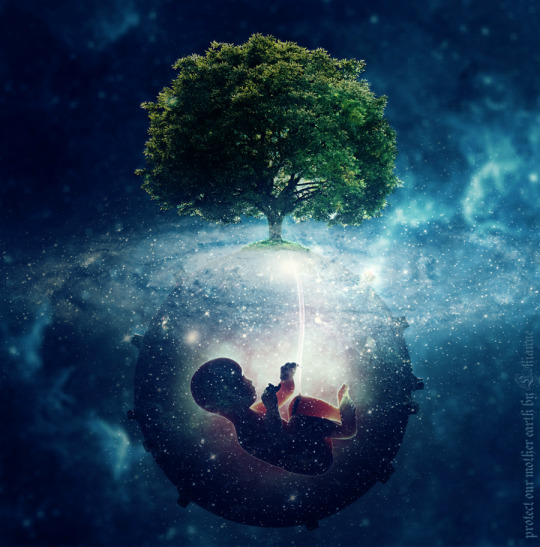
FEMALE IS FIRST
I see this backwards mysticism all over the place. Christian theology based heavily on the platonist notions that the trinity is Nous, Logos, and then Sophia.
Even Crowley in his Hermetic Qabbala did this. He goes from Crown to masculine wisdom and feminine understanding. A) Kabbalah is a Jewish mystical system not a Western Esoteric fashion statement. Chokmah is feminine. Woman Wisdom is the first formed being. She is the World Soul. I promise you I’m right.
Now, Yehoshua- YHVH IS SALVATION- pointed humanity back in the direction of Godhead within. That style of teaching is Chokmah- Divine Wisdom. He spoke from a place of Binah- Divine Understanding. His entire Helakhah- way of being- alludes to the Divine Feminine found in Chockmah being the Shekhinah Glory permeating ALL of Malkhut.
Hakemah Elaha- it’s an Aramaic phrase that- like all Semitic languages- is incredibly difficult to put in English we can grasp. The wisdom tradition is very specific about the matriarch being what binds us together. Hakemah- is the divine wisdom that forms into the universe we live in. She is the glue. Elaha- is unity. We see God is all there is. To chant Hakemah Elaha is to feel the sense of divine wisdom permeating all of creation. We relax into the womb of divinity.
Now it’s doubtful I will ever attempt to describe what lies beyond Sophia- Chockmah and Logos- Binah (in a Christian sense). Moshe was pretty specific about the infinite unknowable One being beyond our understanding.
The Aramaic word Abwoom- our Father?- opens us up to the Divine Wisdom of the Infinite Unknowable One but it’s paradoxical. Abloom alludes to an ongoing process of creation where feminine and masculine are one. They cease being the base definitions of gender we have and become this sort of co-parent body of isness?
I know that’s not an answer to it’s true meaning. I write as I learn and share that process. Welcome to the perpetual state of becoming. 😂 We simply don’t know what God is no matter how deep into relationship we get. So, let’s close with the Scottish wisdom of Paolo Nutini- “it was in love I was created and in love is how I hope I die.”
#language#semitic languages#mysticism#abwoon#Sophia#Chokmah#woman wisdom#inner transformation#spirituality#logos#Elaha#chakemah#aramaic#Yehoshua#yhwh#divine feminine#divine masculine#we don’t know#esoteric#ein sof#big hmmmm#wisdom
6 notes
·
View notes
Note
Yehoshua and Bilam for the ask meme?
Yehoshua:
I think he'd be a Paladin. He's a warrior, he got his start leading the Israelites in battle. While he's also a leader of course, a lot of him is a fighter. He was a spy and a tactitian, all while being imbued with the spirit of G-d.
As for his alignment, he'd be Lawful Good. Being Moshe's student, he was drilled with a sense of justice and legality. Everything he did was calculated and carefully planned.
Bilam:
Bilam would be a Druid, hands down. For anyone not aware, Bilam was a priest sent by the king Balak to curse the Jews while they were in the desert, but he ended up blessing the Jews instead after Divine Intervention (and the help of a talking donkey). Bilam has a connection with nature with the whole talking donkey situation, and he clearly has divine powers, even though he wasn't Jewish.
His alignment would be True Neutral. Bilam is a very complicated character. He was sent on a mission to curse the Jews, and was enthusiastic about it, and it's not clear at times whether he defied his mission because of Divine Intervention or because he genuinely changed his mind. However, he gave a beautiful blessing to the Jews when he did bless them, according to Midrash because he was inspired by the way the Jews set up their camps to give each other privacy. Therefore, he's placed solidly at True Neutral.
5 notes
·
View notes
Text
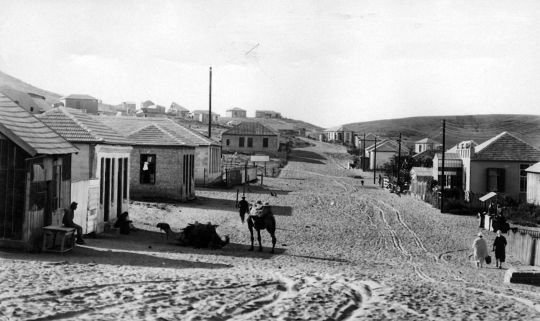
11 Sivan - Bnei Brak - 1924
On this day in 1924, the town of B’nai Brak was settled just east of Tel Aviv in Israel. The town is originally mentioned in the Book of Yehoshua and is most famous for being the place of the all-night Seder mentioned in the Passover Haggadah that was led by R’ Akiva. During the 4th Aliyah, 8 Chassidic families immigrated from Poland intending to build a religious agricultural settlement. By 1933, those 8 families had attracted over 1,000 others including the Chazon Ish who was considered the leading Rabbi in Israel until he died in 1953. The Jewish world was being guided from his little house in the town. By 1948, the population would be almost 10,000, and today there are nearly 200,000 residents. In 1950, B’nai Brak became an official city of the young State of Israel.
Much of the growth and development of B’nai Brak can be attributed to R’ Yosef Shlomo Kahaneman. R’ Kahaneman had already led the city of Ponevezh in Lithuania for 20 years. One of the largest Jewish cities in Lithuania, under his tutelage the city exploded as a center of Torah. At the outbreak of WWII, he was on a trip to Israel and found himself stranded there. He continued to run the city’s institutions from afar. In 1941, the city of Ponevezh was decimated first by the Red Army and then a few days later by the Nazis y”s. The local Yeshiva was destroyed and all its students were murdered. What was R’ Kahaneman’s response? Within two years he opened the Ponevezh Yeshiva in Bnei Brak with Rommel and the Nazis just a few sand dunes away in North Africa. As Europe was up in smoke, he saw his duty to rebuild Torah in Israel. Within a few months, Rommel would be dead and the Ponevezh Yeshiva would be on its way to making R’ Kahaneman’s vision a reality.
Rabbi Pinchas L. Landis
13 notes
·
View notes
